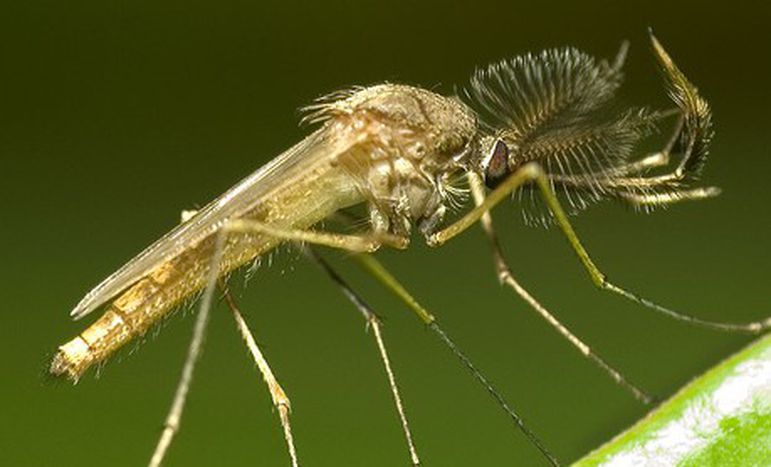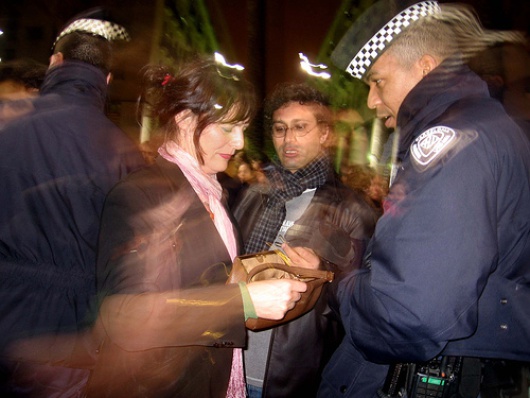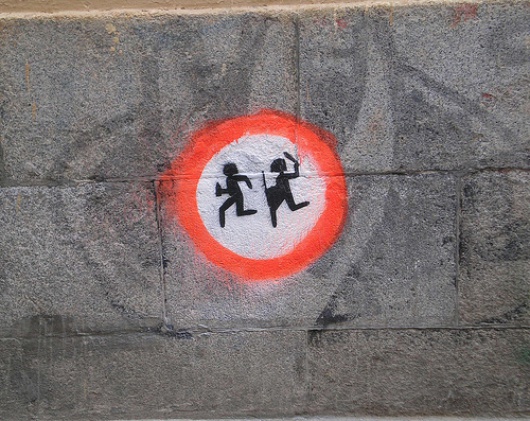
‘Mosquito’ device shuts up Britain’s anti-social teenagers
Published on
On 22 May, Belgian European commissioner Jan Figel joined the Brits and French in asking the EU to ban an electronic device which targets ‘anti-social’ behaviour in young people by emitting a high frequency
If you are over 25, you can’t hear it. The noise was first used to scare away vermin. Since January 2006, the 16, 000 Hertz frequency of the ‘Mosquito’ device specifically targets Britain’s young people. With 5, 000 sold and some 3, 500 high frequency-emitting electronic gadgets in use in most of the UK’s shops, the phenomenon is now emerging in Belgium, France, Germany and Switzerland.
Buzzingly bad for your health – and your rights
 You could consider use of the Mosquito against a number of rights protected by international and European human rights law; respect for private and family life (Article 8, European Convention on Human Rights), the prohibition of discrimination (Art. 14), the freedom from violence and degrading treatment (Art. 2 and 3), the freedom of assembly (Art. 11), the freedom of movement (Art. 2, protocol 4) or the right to a high standard of physical and mental health (Art. 12 of International Covenant on Economic, Social and Cultural Rights). Sir Al Aynsley-Green, the UK Commissioner for Children and head of the ‘Buzz Off’ campaign called for the UK government to ban the use of Mosquitos on 20 May, as the Education, Youth and Culture Council of the European Union took place in Brussels.. ‘We are sending out the message that we as a society do not value our children and young people and do not respect their rights. This has to end now.’
You could consider use of the Mosquito against a number of rights protected by international and European human rights law; respect for private and family life (Article 8, European Convention on Human Rights), the prohibition of discrimination (Art. 14), the freedom from violence and degrading treatment (Art. 2 and 3), the freedom of assembly (Art. 11), the freedom of movement (Art. 2, protocol 4) or the right to a high standard of physical and mental health (Art. 12 of International Covenant on Economic, Social and Cultural Rights). Sir Al Aynsley-Green, the UK Commissioner for Children and head of the ‘Buzz Off’ campaign called for the UK government to ban the use of Mosquitos on 20 May, as the Education, Youth and Culture Council of the European Union took place in Brussels.. ‘We are sending out the message that we as a society do not value our children and young people and do not respect their rights. This has to end now.’
‘I wish for this device to be purely and simply prohibited, whatever legal form it takes,’ stated Roselyne Bachelot, French health minister, on 9 April in Le Figaro. The high pitch sounds could have harmful effects on the hearing in the longer term, add a group of MEPs led by Dutchman Jan Marinus Wiersma, vice-president of the socialists. Their written declaration from 13 May calls on the EU to ban its sale and use. If half of the 732 MEPs sign the declaration, the European parliament will officially ban these devices.
Anti-young people behaviour
 The Mosquito fosters a negative portrait of young people. The media is given the impression that all should be seen as potential troublemakers, even dangerous. The matter lies in the negative perception. No group in society should be excluded from using public spaces. The socialist and communist parties in France have also requested the French government to ban Mosquito sales; they vilify young people by taking for granted they are a menace.
The Mosquito fosters a negative portrait of young people. The media is given the impression that all should be seen as potential troublemakers, even dangerous. The matter lies in the negative perception. No group in society should be excluded from using public spaces. The socialist and communist parties in France have also requested the French government to ban Mosquito sales; they vilify young people by taking for granted they are a menace.
In the Nouvel Observateur on 2 April, French housing minister Christine Boutin expressed concern that ‘our society has reached such a high degree of stigmatisation and exclusion of young people. The priority is to ensure good living conditions for all, and not to take doubtful measures without consulting with the public.’ In constitutional states, the citizens should be those regulating public life with the power of sanction through their government. Young people should help in the design of community-led solutions to anti-social behaviour.
EU, where is your stand
 The EU;s 27 countries concerned are questioning the attitude of responding to the installation of these repellents as being ‘anti-youth’. The UK has demonstrated a great tolerance for the Mosquito. But while France, Belgium and the Netherlands criticise its use, they remain hesitant on how to regulate it. For their part, a good number of youth organisations, civil society organisations and politicians have launched campaigns for a European ban. The Council of the EU and the Ccmmission should help do so, before its use becomes widespread across the EU.
The EU;s 27 countries concerned are questioning the attitude of responding to the installation of these repellents as being ‘anti-youth’. The UK has demonstrated a great tolerance for the Mosquito. But while France, Belgium and the Netherlands criticise its use, they remain hesitant on how to regulate it. For their part, a good number of youth organisations, civil society organisations and politicians have launched campaigns for a European ban. The Council of the EU and the Ccmmission should help do so, before its use becomes widespread across the EU.



